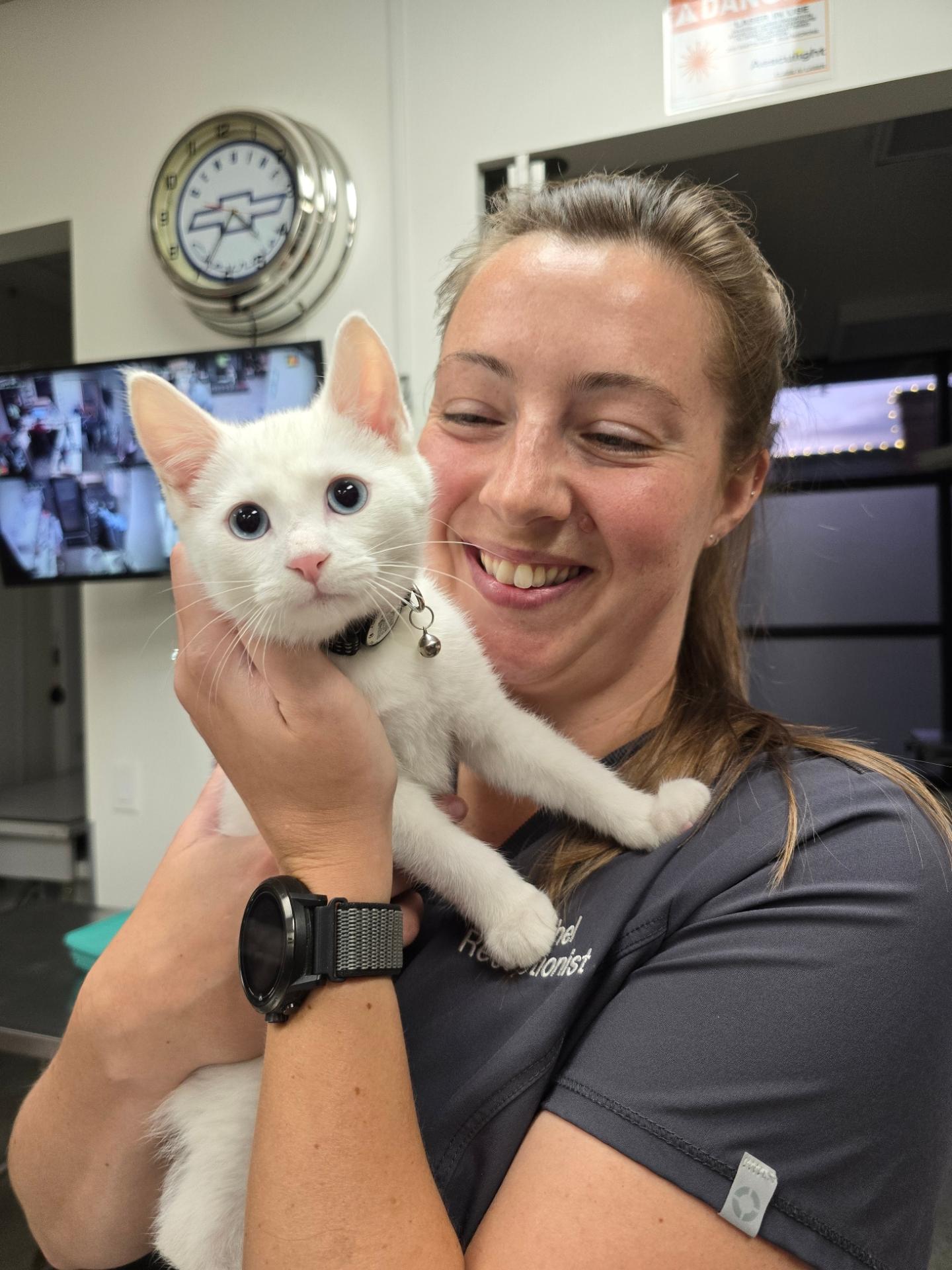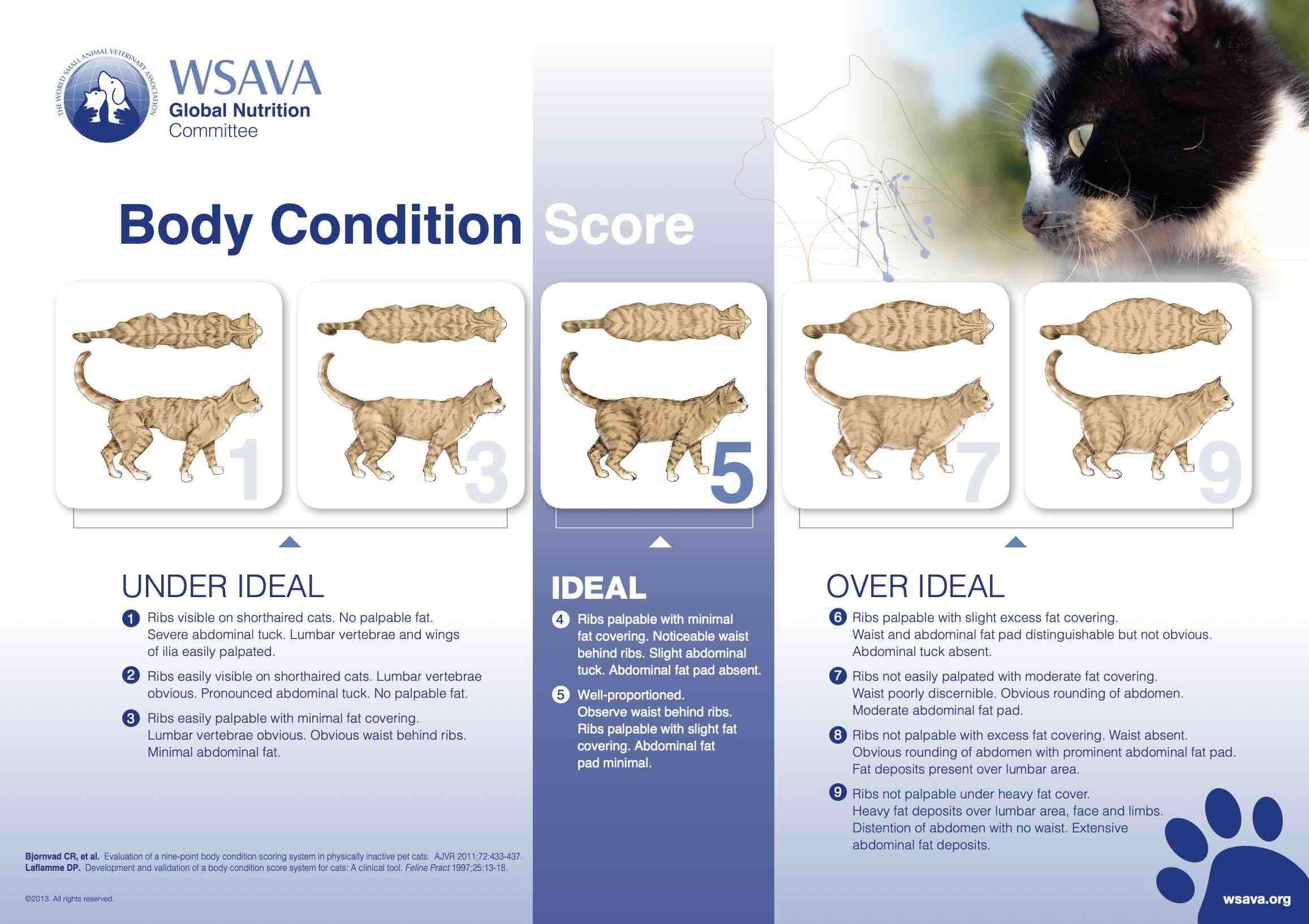Why Proper Nutrition Matters

Proper feline nutrition is essential for overall health, happiness and well-being of your furry companion. Just like humans, cats require a balanced diet that provides the right amount of nutrients to support their growth, energy levels, and immune system. High-quality pet food should contain appropriate proportions of protein, fats, carbohydrates, vitamins, and minerals to prevent health issues. The specific nutritional needs of your feline depends on factors such as age, size, and activity level. Puppies and kittens, for example, need diets rich in protein and fat to fuel their rapid growth, while senior pets may require food that's lower in calories and enriched with joint-supporting nutrients like glucosamine.
In addition to the right food, portion control is key to maintaining a healthy weight. Obesity in cats is a common issue that can lead to other health problems like diabetes, heart disease, and joint pain. At Salish Veterinary Hospital, we offer nutrition counseling to help guide you on the proper diet for your pet. Consulting with our veterinarians regularly will help you make any necessary adjustments to your pet's diet based on their changing needs and health status.
Raw Diets
At Salish Veterinary Hospital, we do not recommend raw diets for cats due to the significant health risks they pose for both pets and their families. While raw feeding has gained popularity among some pet owners, research and clinical experience show that these diets often carry dangerous bacteria such as:
- Salmonella
- E.coli
- Listeria
These diseases can be transmitted through handling or shed in a cat's feces. This presents a particular risk in households with young children, elderly individuals, or immunocompromised members.
Additionally, raw diets are frequently nutritionally unbalanced, lacking the essential vitamins, minerals, and amino acids-like taurine-that cats, as carnivores, require to stay healthy. At Salish Veterinary Hospital, we prioritize evidence-based nutrition and strongly encourage pet owners to choose diets that are veterinarians-approved, complete, and balanced to ensure the long-term health and well-being of their feline companions.
If you would like to know more, here is an informative article on this topic.
Vegetarian/Vegan Diets
At Salish Veterinary Hospital, we strongly advise against feeding cats vegetarian or vegan diets. Cats are obligate carnivores, meaning their bodies are biologically designed to thrive on a diet primarily made up of meat. Unlike omnivores, cats lack the ability to synthesize certain essential nutrients from plant-based ingredients. For example, they require taurine, an amino acid found almost exclusively in animal tissue. A deficiency in in taurine can lead to severe health issues such as heart problems, vision problems, weakened immune systems, and neurological problems.
Additionally, cats need arachidonic acid, vitamin A, and vitamin B12 from animal sources, as they cannot efficiently convert plant-based precursors into usable forms. Feeding a cat a vegetarian or vegan diet can lead to malnutrition and life-threatening conditions. To support their health, energy levels, and overall well-being, it is essential that a cat's diet includes high-quality animal proteins that meet their specific nutritional needs.
Generally, we do not recommend feeding a grain-free diet to your feline companion.
Obesity in Cats
Obesity in cats is a growing issue. Just like humans, obesity occurs when an animal consumes more calories than it burns, leading to excessive fat accumulation. It is important to recognize that obesity is not just a cosmetic issue-it's a medical condition that can negatively affect a pet's quality of life and longevity. Overweight cats are at higher risk of the following:
- Joint pain and arthritis
- Diabetes
- Heart disease
- Respiratory problems
- Reduced life expectancy
The primary causes of obesity in cats include overfeeding, poor quality or calorie-dense food, lack of exercise, and sometimes, underlying medical conditions. Many pet owners may unintentionally overfeed their pets by offering too many treats, feeding too large of portions, or not providing enough physical activity. Additionally, some pets may be predisposed to obesity due to genetics or certain medications.
Preventing and managing obesity in cats required a multifaceted approach. First, it's crucial to feed cats a balanced, appropriately portioned diets suited to their age, size, and activity level. Consulting with our veterinarians will help you decide what is the right diet and portions to feed. Regular physical activity is essential to burn unnecessary calories. If you cat is overweight, a gradual weight-loss plan under the supervision of a veterinarian can help achieve a healthy weight safely.
Home-Cooked Diets
While home-cooked diets for cats may seem like a wholesome and personalized alternative to commercial pet food, most veterinarians caution against them-especially when not formulated with professional guidance. The main concern is that these diets are often nutritionally unbalanced, lacking critical vitamins, minerals, and amino acids that cats need to stay healthy. Even well-intentioned pet owners can advertently cause deficiencies or imbalances that lead to serious health problems such as:
- Skeletal issues
- Organ dysfunction
- Immune deficiencies
Studies have shown that the majority of home-prepared means-even those found in books and online-fail to meet established nutritional standards. Unless a diet is created under the supervision of a veterinarian, there's a high risk it won't provide the complete and balanced nutrition required for your cat's long-term health. For most pet owners, properly formulated commercial diets remain the safest and most reliable choice.
Body Condition Score (BCS)
The Body Condition Score (BCS) is a tool used by veterinarians to assess the overall body conditions of pets, helping to determine whether an animal is underweight, overweight, or at an ideal weight. The BCS system is widely used in veterinary practices to provide a standardized method of evaluating a pet's body fat and muscle mass. It allows veterinarians and pet owners to monitor changes in an animal's health and adjust their diet and exercise plans accordingly.
Typically the Body Condition Score ranges from 1 to 9, with 1 being extremely underweight, and 9 indicating severe obesity. A score of 5, in the middle of the scale, is considered ideal, representing a pet with a well-balanced weight and healthy body composition.
- Score 1-3 (Underweight to Thin): Pets with scores in this range may have visible ribs, prominent bones, and little to no fat cover. They may appear weak, and their spine and hip bones are easily felt. This could be due to malnutrition, illness, or other underlying health conditions.
- Score 4-5 (Ideal Weight): A score of 5 represents a pet in optimal health, with a visible waistline, ribs that can be felt but not seen, and a thin layer of fat over the bones. Pets in this range are likely to have the most energy and experience fewer health problems.
- Score 6-9 (Overweight to Obese): Pets in this range may have an absent or rounded waistline, and their ribs are difficult to feel because of excess fat. Pets with higher scores often experience difficulty moving and may have increased risks of joint problems, heart disease, and diabetes. Obesity can lead to a significant decline in a pet's overall health and quality of life.

Veterinarians use the BCS during routine exams to identify early signs of weight-related health issues, and it can also serve as a guide to make dietary and exercise recommendations. Regular monitoring of a pet's body condition allows for timely interventions, helping to prevent or treat obesity or malnutrition before it leads to more serious health problems.
For pet owners, maintaining their pet's ideal body condition through proper nutrition, portion control, and regular exercise in crucial. Consulting with our veterinarians to determine the most appropriate BCS for their pet is a valuable step in promoting long-term health and well-being.
